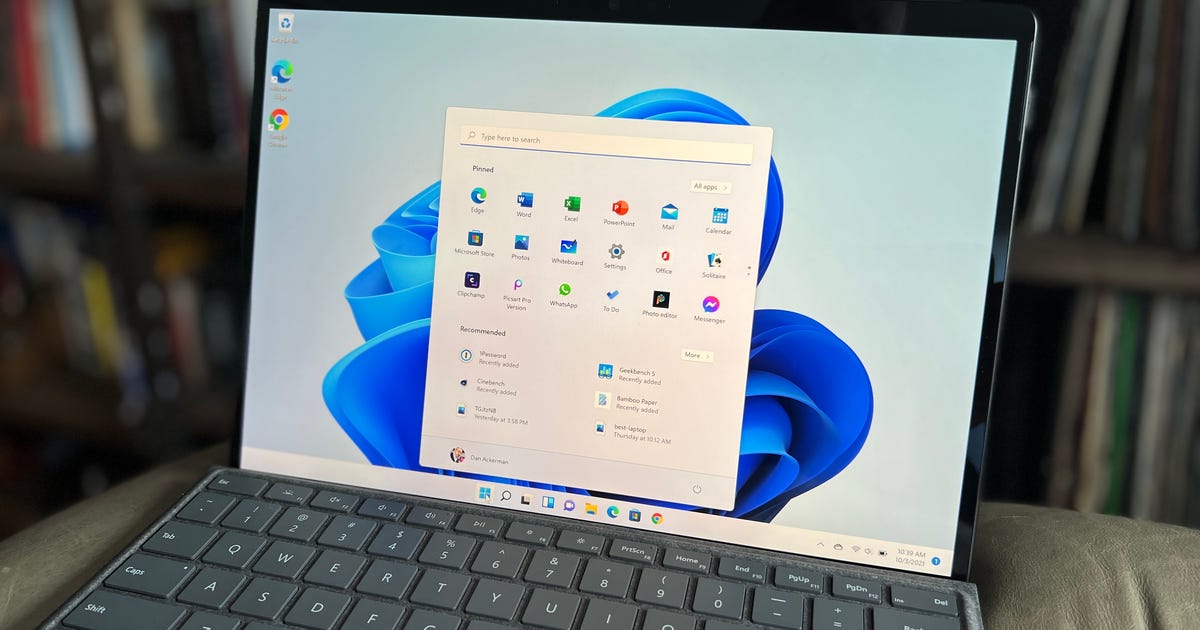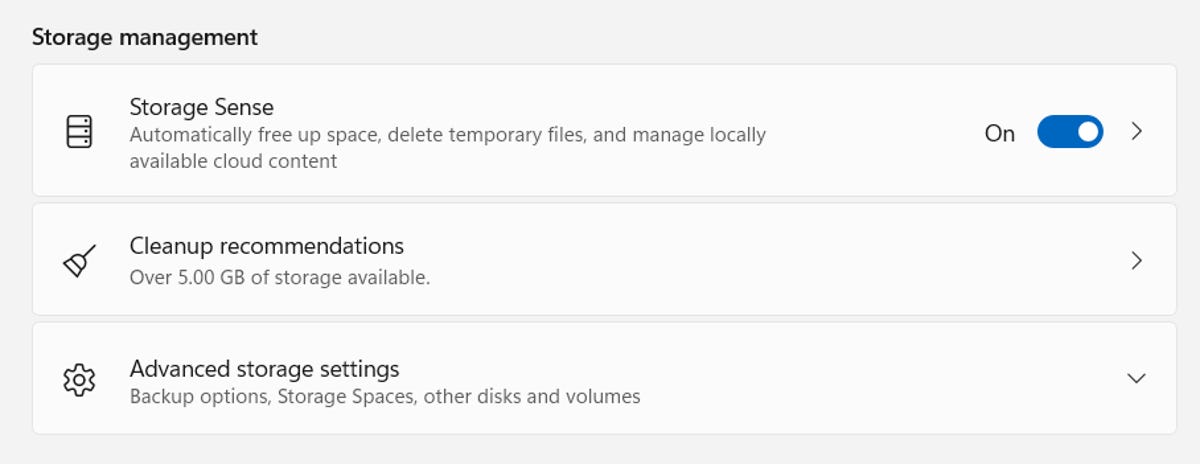
Low Storage on Windows 11? Here's How to Free Up Disk Space on Your PC
The last thing you want is a hard drive with little or no storage space. A near-full hard drive negatively affects your entire computer, which will inevitably slow it down and cause your applications to crash more frequently. The only fix really is to clean up your drive and remove large files taking up the most space, and Windows 11 makes it easy to get rid of what you don't need.
Instead of downloading third-party software to free up disk space, Windows 11 has a few settings you can configure to quickly delete temporary and system files, as well as old downloads. And if you're worried about getting rid of important files, don't fret -- Windows 11 will help you decide what to get rid of to improve your PC's performance.
On your Windows 11 computer, go to Settings -> System -> Storage. If this is your first time visiting this setting, wait a few seconds for your computer to analyze your data storage. Once Windows has collected what it needs to know, you'll be able to see your total free memory at the top of the page. Underneath that you'll see a breakdown of your storage, divided into apps and features, temporary files and other. You can also click Show more categories to view a further breakdown.
The setting we're interested in, however, is Storage Sense, which automatically frees up space on your computer whenever your disk space is low. It does this by deleting temporary files, emptying your Recycle Bin and getting rid of old downloads, in the background, without you having to manually do it.

Enable Storage Sense to make Windows 11 automatically free up space.
Nelson Aguilar/CNETTo turn on Storage Sense, simply toggle it on here. If you click the setting, you can configure several features:
- Run Storage Sense: Run Storage Sense during low disk space (default) or every day, week or month.
- Delete files in my recycle bin if they have been there for over: Choose 1 day, 14 days, 30 days (default) or 60 days.
- Delete files in my Downloads folder if they haven't been opened for more than: Choose never (default), 1 day, 14 days, 30 days or 60 days.
These Storage Sense settings can help you limit which files are removed, and when they're removed, so that you don't have to worry about any important files getting wiped from your computer.

You can configure how often Windows 11 cleans up your disk space, as well as which files it deletes and how often.
Nelson Aguilar/CNETAt the bottom of the page, you can click Run Storage Sensenow to use the feature then and there.
And if you want to get rid of more files to clear up space, use the Cleanup recommendations feature underneath Storage Sense. If you click on it, it will scan your system and recommend files for you to manually delete, such as temporary files, large or unused files, files synced with your cloud and unused apps.
Want to learn more about Windows 11? Check out the biggest differences between Windows 10 and Windows 11. Also, these are the best features on Windows 11 you need to know about. And if you haven't downloaded Windows 11 yet, here's how what you need to do.
Source
Tags:
- How To Free Storage On Windows 11
- How To Get More Storage Windows 11
- Low Storage Space Windows
- Low On Storage Windows 10
- Low Storage Space Windows
- Free Storage Space Windows 11
- Low Storage On Fire Tv
- Low Storage Cabinet With Doors
